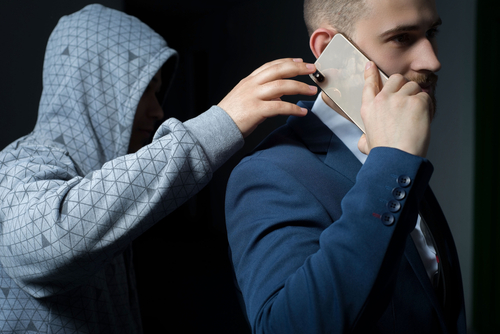Physical Address
304 North Cardinal St.
Dorchester Center, MA 02124
Physical Address
304 North Cardinal St.
Dorchester Center, MA 02124

Nearly one in three people in the UK have fallen victim to phone theft – leaving millions exposed to financial loss, identity theft and personal violation.
That’s according to a new report from British fintech firm Nuke From Orbit, whose app helps users instantly lock down multiple services when a phone is stolen – including banking apps, email, and other sensitive accounts.
The research, conducted by Sapio Research in March, surveyed 1,000 UK smartphone owners. It reveals a system in crisis, with theft rates up 12% since 2023 and widespread failure in the protections meant to safeguard consumers.
Titled “The Rising Threat of Smartphone Theft”, the report shows that 29 per cent of UK consumers have had a phone stolen. But the problems don’t end there: 84 per cent of victims said they faced major obstacles trying to secure their personal data after the theft – leaving bank accounts, photos, and even intimate messages dangerously exposed.
“This isn’t just about losing a device. It’s about losing control of your digital life,” said James O’Sullivan CEO of Nuke From Orbit. “The industry’s fragmented response is letting criminals win.”

The rise of AI-driven hacking tools could be compounding the problem. More than half of respondents believe that artificial intelligence is helping criminals bypass traditional phone security measures, paving the way for a more sophisticated wave of tech-enabled theft.
The report also reveals growing public disillusionment with law enforcement: many victims are now significantly less likely to report phone theft to the police. And while blame is directed at manufacturers, mobile networks, and even consumers themselves, the lack of clear accountability has created what the report describes as a “dangerous void.”
“Smartphone theft is now a gateway to identity theft, fraud, and worse,” warns O’Sullivan. “And yet we’re still relying on a patchwork of defences – and passing the buck when it fails.”
The report urges the entire mobile ecosystem – from device makers to telecom providers and banks – to work together and deliver stronger, faster and more integrated protections. It also welcomes recent government moves,but says that coordinated action is urgently needed.
“This is a wake-up call,” says O’Sullivan. “We need a world where losing your phone doesn’t mean losing everything.”